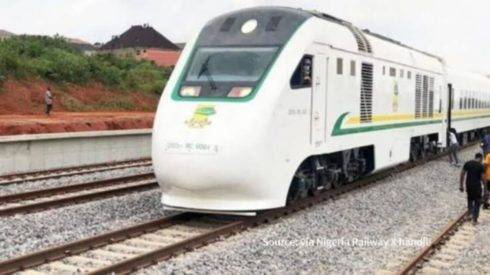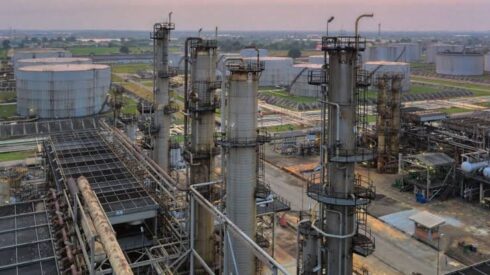The Kano- katsina- Jibiya- Maradi Rail way project had attracted loans of $1.3billion for the advancement of the project,The Minister of Transportation, Said Alkali, announced . The project aims to enhance transportation infrastructure between Nigeria and Niger Republic, fostering closer ties and facilitating economic growth in both nations.
Strengthening Cross-Border Connectivity
The allocation of $1.3 billion for the Kano-Katsina-Jibiya-Maradi Railway Project signifies a significant milestone in the efforts to improve cross-border connectivity and regional cooperation. By enhancing transportation links between Nigeria and Niger Republic, the project promises to facilitate smoother movement of goods and people, thereby stimulating trade and economic activities in the region. Additionally, the railway project is poised to promote cultural exchange and strengthen diplomatic relations between the two neighboring countries.
Moreover, the endorsement of the project by key stakeholders such as the Managing Director of the Nigerian Railway Corporation, Fidet Okhiria, and a senior director with the African Development Bank, Muhammad Abdulrazak, underscores its importance as a catalyst for positive change. Their support further validates the potential of the Kano-Katsina-Jibiya-Maradi Railway Project to drive economic growth, create employment opportunities, and spur socio-economic development across the region.
Impact on Economic Growth and Regional Cooperation
The successful securing of funds for the Kano-Katsina-Jibiya-Maradi Railway Project heralds a new era of cooperation and development between Nigeria and Niger Republic. By investing in critical infrastructure, the Federal Government aims to unlock the economic potential of the region, harnessing opportunities for trade, investment, and industrial development. The railway project is expected to reduce transportation costs, shorten travel time, and improve access to markets, thereby empowering local businesses and driving inclusive growth.
Furthermore, the project’s alignment with the African Union’s Agenda 2063 and the Economic Community of West African States (ECOWAS) vision of regional integration highlights its significance in promoting peace, stability, and prosperity in the sub-region. As Nigeria and Niger Republic collaborate to realize this ambitious infrastructure initiative, they pave the way for closer economic ties, enhanced social cohesion, and shared prosperity for their citizens. Through sustained investment in cross-border transportation infrastructure, the two countries demonstrate their commitment to fostering mutual development and building a brighter future for generations to come.
Federal Government’s Push for Timely Completion of Kano-Katsina-Jibiya-Maradi Railway Project
The Federal Government’s unwavering commitment to ensuring the timely completion of the Kano-Katsina-Jibiya-Maradi Railway Project marks a significant stride towards bolstering regional connectivity and stimulating economic growth. Securing a loan of $1.3 billion underscores the magnitude of this endeavor, signaling the government’s determination to bridge infrastructural gaps and foster cross-border cooperation. This ambitious project holds immense potential for fostering seamless connectivity of people and goods between the countries involved, thereby catalyzing economic activities and propelling growth trajectories.
The envisioned railway corridor not only promises to facilitate the efficient movement of goods and passengers but also holds the promise of fostering closer ties between Nigeria and Niger. By enhancing connectivity and promoting trade relations, this project has far-reaching implications for regional stability and security. The increased flow of goods and people is poised to create a ripple effect, spurring investment opportunities, job creation, and economic diversification. As such, it is imperative for citizens of both countries to rally behind their respective governments and support the swift completion of this transformative infrastructure initiative.
Benefits and Implications of the Project
The Kano-Katsina-Jibiya-Maradi Railway Project holds a myriad of benefits that extend beyond mere infrastructural development. At its core, this initiative promises to revolutionize regional trade dynamics by facilitating easier movement of goods and fostering cross-border commerce. The seamless connectivity offered by the railway corridor is expected to streamline supply chains, reduce transportation costs, and enhance market access for businesses operating in the region. This, in turn, has the potential to unlock new avenues for economic growth and prosperity.
Furthermore, the project’s significance transcends economic realms, with profound implications for regional security and diplomatic relations. The establishment of robust transportation links between Nigeria and Niger fosters a sense of interdependence and mutual cooperation, laying the groundwork for enhanced diplomatic ties and collaborative efforts in addressing shared challenges. By promoting cross-border mobility and cultural exchange, the railway project paves the way for greater understanding and solidarity between the peoples of both nations, thereby fortifying the fabric of regional stability.
In light of these multifaceted benefits, it is incumbent upon stakeholders to lend their unwavering support to the timely completion of the Kano-Katsina-Jibiya-Maradi Railway Project. By harnessing the transformative potential of this infrastructure initiative, Nigeria and Niger stand poised to chart a course towards shared prosperity, strengthened bilateral relations, and sustainable development
Table of Contents
Discover more from OGM News NG
Subscribe to get the latest posts sent to your email.













